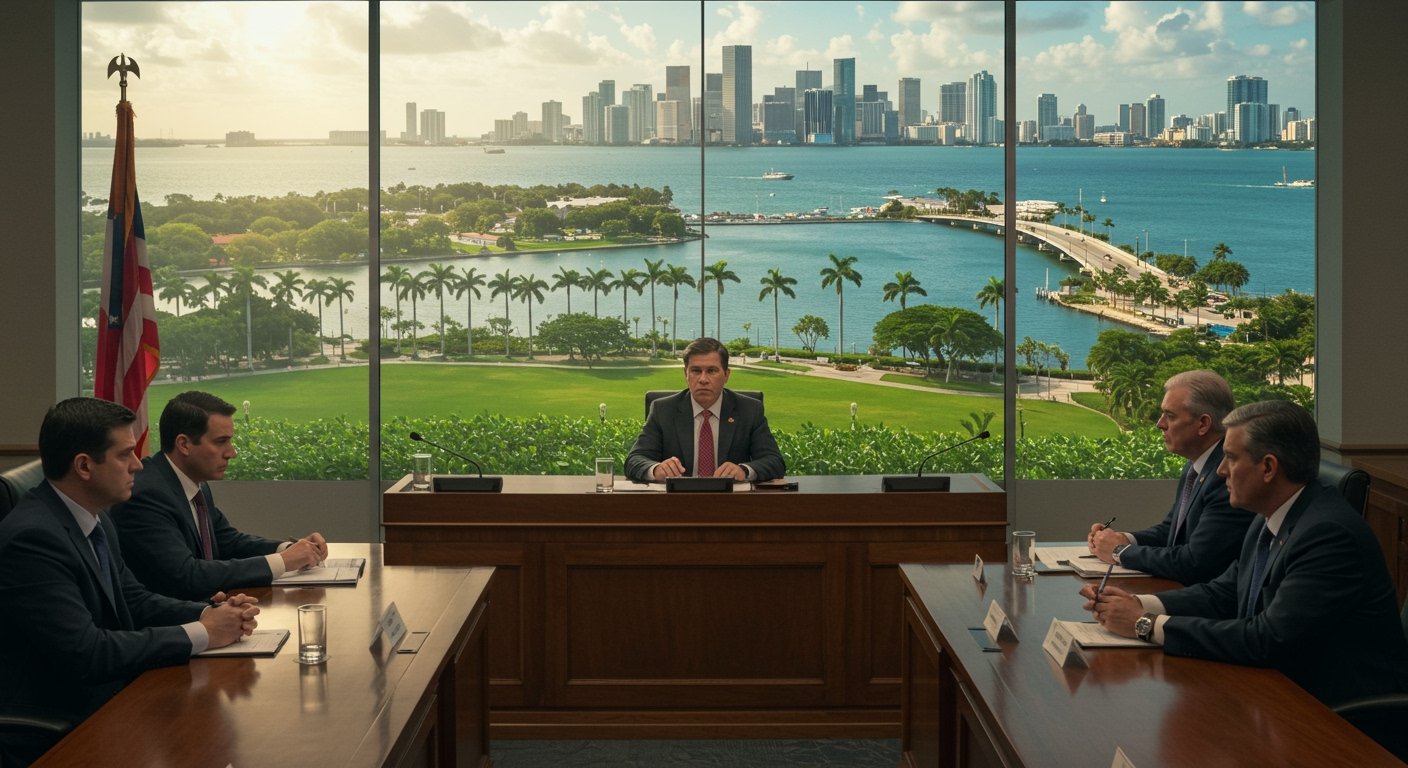MIAMI – The future governance of two prominent downtown parks, Bayfront Park and Maurice Ferré Park, hangs in the balance as the Miami City Commission approaches a decisive second and final vote scheduled for July 10. Last week, during its first reading, the commission advanced a resolution that would dissolve the long-standing Bayfront Park Management Trust by a narrow 3-2 margin.
The measure, championed by Commissioner Ralph Rosado, seeks to transfer control and operational responsibilities for both parks from the trust directly back to the city administration. This move comes after decades of the trust overseeing the parks’ management, a period Commissioner Rosado characterized during discussions on June 26 as one where the entity had become a “political football” for 40 years.
Rationale for Dissolution
Supporters of the dissolution argue that the current structure has fostered ongoing disputes and operational challenges that hinder effective park management and long-term stability. Commissioner Rosado articulated his view that placing operations under the city manager would create a more stable and accountable framework.
He suggested that the parks’ management could be potentially integrated into the city structure as a dedicated city division or potentially reconstituted under a different model, such as a conservancy directly overseen by the city administration. This shift, proponents believe, would streamline decision-making, reduce internal conflicts that have plagued the trust, and ensure park management aligns more closely with overall city planning and resources.
Voting in favor of the resolution during the first reading were Commissioners Christine King, Joe Carollo, and the sponsor, Ralph Rosado.
Opposition Voices Heard
However, the proposal faces significant opposition from within the commission. Commissioners Damian Pardo and Miguel Gabela cast the dissenting votes, arguing against the dissolution. Their central contention is that the current board of the Bayfront Park Management Trust has recently achieved a degree of stabilization in its operations.
They also highlighted what they described as improved resident engagement, particularly concerning discussions and planning related to the park’s master plan. Opponents expressed concerns that dissolving the trust now would disrupt this progress and potentially detach park management from the direct community and stakeholder involvement that the trust structure has facilitated, despite its past challenges.
Leadership and Recent History
The backdrop to the current debate includes recent shifts and controversies surrounding the leadership of the Bayfront Park Management Trust itself. Commissioner Joe Carollo had chaired the trust since 2017, presiding over it for several years. More recently, Commissioner Miguel Gabela was appointed chair earlier this year, an appointment that occurred amidst controversy, further underscoring the political tensions often associated with the trust’s governance.
Commissioner Rosado’s characterization of the trust as a “political football” reflects these dynamics, suggesting that the entity’s board composition and decisions have frequently been subjects of political maneuvering rather than purely operational considerations.
The Path Forward
The resolution’s advancement on its first reading sets the stage for the critical final vote on July 10. If the measure is approved by the commission on this second reading, the Bayfront Park Management Trust would be formally dissolved. Its legal authority, assets, and, crucially, its duties pertaining to the management and operation of Bayfront Park and Maurice Ferré Park would then be transferred directly to the city administration.
The outcome of this vote will determine the administrative model for two of Miami’s most important public spaces, potentially ushering in a new era of direct city control and oversight, or preserving the trust structure with its inherent complexities and a recent history of attempted stabilization. The final decision rests with the five-member commission, whose split vote on first reading indicates the significant and differing perspectives on the best path forward for these vital urban parks.





